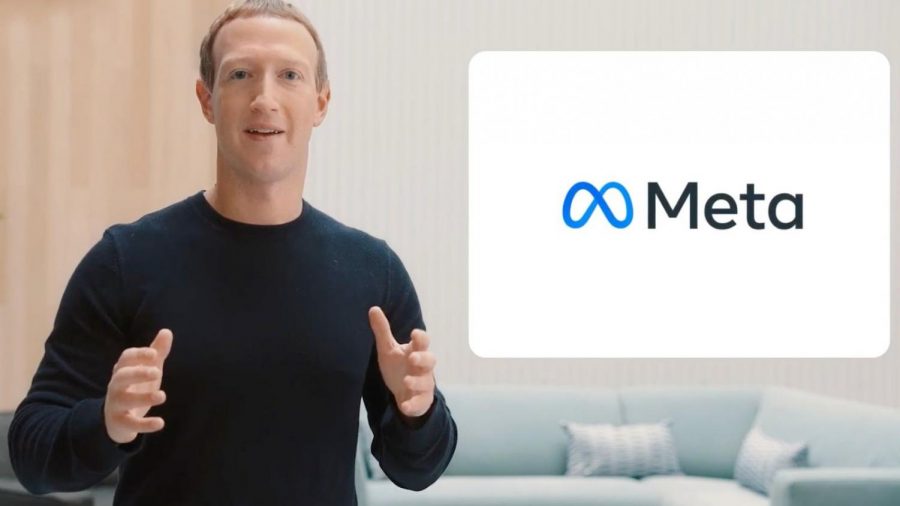Facebook to Meta, what is it?
Mark Zuckerberg reveals Facebook’s new name, “Meta,” in an online video.
November 23, 2021
Facebook founder and Chief Executive Officer, Mark Zuckerberg, announced Thursday, Oct. 28 that Facebook is officially changing their name to Meta. Meta, short for Metaverse, was announced in their companies’ virtual conference. The name change marks a significant shift in the company’s goals and direction, and also gives an idea of what they would like to attain in the future. On the contrary, it is an attempt to get away from all the bad press and reputation the old Facebook name carried.
“Right now, our brand is so tightly linked to one product that it can’t possibly represent everything that we’re doing today, let alone in the future,” Zuckerberg said.
The Metaverse, as of now, does not exist. The idea of a metaverse appears in sci-fi movies, books and even television shows such as “Ready Player One,” “The Matrix” and “Stranger Things.” These forms of media demonstrate the concept where everything in real life has a digital equivalent.
In the metaverse, users can go to school, work, play games, watch concerts, browse stores and much more without ever leaving the comfort of their home. If the internet is two-dimensional (images and text on flat screens), think of the metaverse as a three-dimensional and multi-sensory platform that includes the ability of touch.
In a recent Spotify podcast, Casey Newton, founder and editor of Platformer, speaks with Zuckerberg about his vision for an embodied internet (or “the metaverse”), the challenges of governing it.
“The metaverse is a vision that spans many companies, the whole industry. A big part of our next chapter is going to hopefully be contributing to building that in partnership with a lot of other companies and creators and developers. You can think of the metaverse as an embodied internet. Instead of [just] viewing content, you are in it and feel present with other people, other places, having other experiences you can’t have with a 2d app.” says Zuckerberg.
The name was chosen to portray the product that Zuckerberg hopes Meta will be represented by. The metaverse, a shared online 3D virtual space, will hopefully have a number of companies interested in creating a futuristic version of the internet.
“In this future, you will be able to teleport instantly as a hologram to be at the office without a commute, at a concert with friends, or in your parent’s living room to catch up,” Zuckerberg wrote in a letter announcing Facebook’s rebranding.
Meta doesn’t want to be known solely as a social media platform. They want to change the whole way people look at the internet and platforms today. The company states it will be a “maximalist version of what the internet could be.”
Despite the new ideas and opportunities displayed with the metaverse, many people and companies are not over the Facebook dilemma and all the problems that occurred with Zuckerberg and his app.
“Changing the name doesn’t change reality: Facebook is destroying our democracy and the world’s leading peddler of disinformation and hate,” the Real Facebook Oversight Board said in a statement.
Meta can change the internet forever. Depending on how fast Zuckerberg and his team can create what claims to be one of the biggest changes in online history, we can see Meta in use within the next few years.








![“She [Walker] was the biggest advocate for any student,” said Basile.](https://mundismillmedia.com/wp-content/uploads/2023/05/Colorful-Watercolor-Note-Paper-with-Brush-Stroke-A4-Document-336x475.png)
